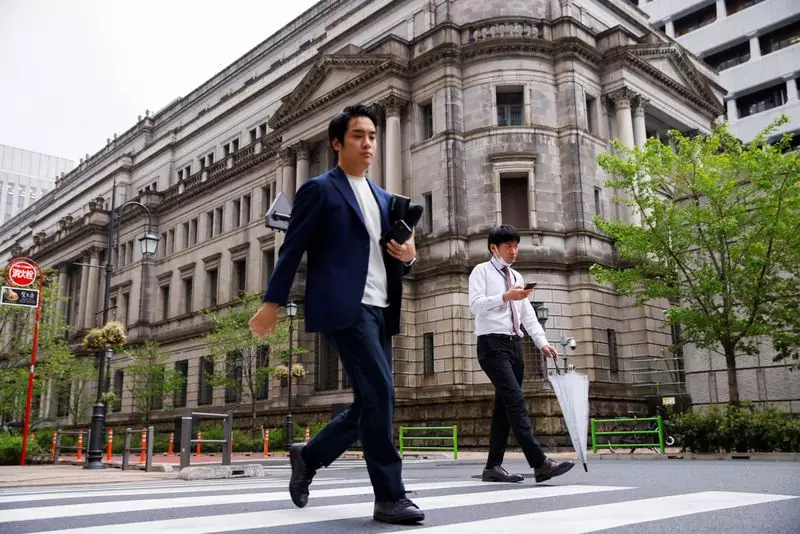Japan’s economy finds itself at a critical junction, characterized by an expansive monetary policy that critics argue has led to detrimental effects on the yen’s value. Takeshi Shina, the shadow finance minister of Japan’s leading opposition party, has publicly voiced concerns regarding the current stance of the Bank of Japan (BOJ) during recent media engagements. His call to raise interest rates to at least 1% reflects a growing consensus that the central bank’s extensive stimulus measures are becoming counterproductive.
Currently, the policy rate stands at a mere 0.25%, a figure Shina argues is significantly below the neutral rate necessary to foster a stable economic environment. He highlights the growing chasm between U.S. and Japanese interest rates, which has resulted in a devaluation of the yen. As the currency weakens, the cost of living for Japanese citizens continues to rise, creating a scenario that strays from the BOJ’s mandate of achieving price stability.
Shina, a prominent voice within Japan’s political landscape, emphasizes the necessity for a gradual uptick in interest rates. He posits that raising rates to the neutral level of 1% would not constitute monetary tightening; rather, it would correct an “excessive” degree of stimulus. The shadows of Japan’s past monetary strategies loom over its future, and Shina’s criticism is rooted in a desire to encourage healthier economic practices that are perceived as overdue.
The urgency of his position is underscored by the distress caused by the yen’s decline, which has aggravated import prices and contributed to stagnant real wage growth. As Shina notes, apart from a few large manufacturers who may benefit from a weaker yen, the broader population stands against the currency depreciation. It raises an essential question about the inclusivity of economic policy, as the ramifications of a weak yen starkly contrast the bank’s objectives.
Political dynamics around fiscal policy in Japan are complex and fraught with tension. Shina’s role as a member of the lower house’s financial committee places him in a unique position to scrutinize BOJ governors, including current head Kazuo Ueda. His insistence on addressing monetary policy is also indicative of the rising power of the Constitutional Democratic Party of Japan (CDPJ), which, despite not holding a majority, has gained traction following a significant general election victory.
The criticism directed at previous BOJ policies, notably those instigated by former Governor Haruhiko Kuroda, echoes a broader sentiment that such radical measures have distorted market functions and eroded financial stability. The necessity for scrutiny becomes even more pressing in light of concerns that current monetary policies may inadequately address the complexities of inflation tied to a weakening currency and a restructured global economic landscape.
Shina’s advocacy for the BOJ to revise its inflation target further illustrates the shifting climate surrounding fiscal strategy. By proposing a more flexible inflation goal, appropriate to prevailing conditions, he envisions a framework where the BOJ can adapt its policies in response to real wage growth while still adhering to a manageable inflation rate. This approach could potentially lay the groundwork for a healthier economic response and facilitate a smoother transition away from extreme monetary policies.
The notion of a dynamic inflation target would allow the BOJ to swiftly respond to market fluctuations and ensure that monetary policy aligns more closely with the public’s economic experience. In a nation grappling with the implications of years of stimulus, the time for recalibration may be at hand.
As the BOJ prepares for its upcoming rate review meetings, critical questions linger regarding the timing and implementation of any potential interest rate hikes. Shina’s assertive stance signifies a broader discourse that will likely continue to influence policy decisions well into the new year, particularly as economists project a likelihood of rate increases by the end of March.
The landscape of Japan’s economy is poised for change, shaped by the interplay of fiscal policies, political influence, and the overarching need for monetary stabilization. As the BOJ contemplates its next steps, the calls for a thoughtful reassessment echo a yearning for a balanced approach to monetary policy—one that promotes sustainable growth while prioritizing the welfare of all citizens. The implications of such adjustments could reshape Japan’s economic future, making this discourse not just a matter of policy, but a pivotal consideration for the nation’s prosperity.

